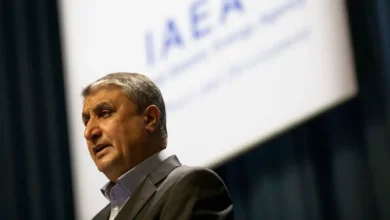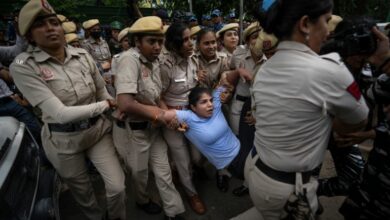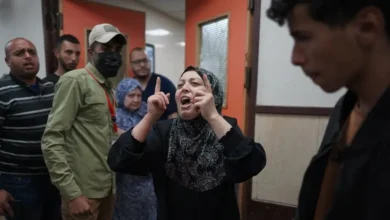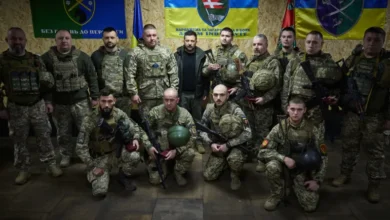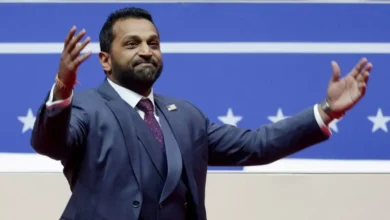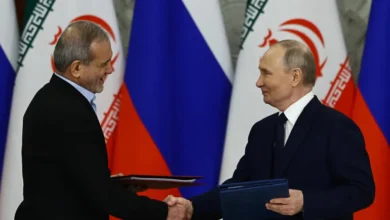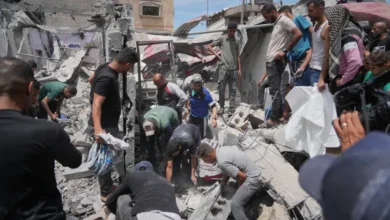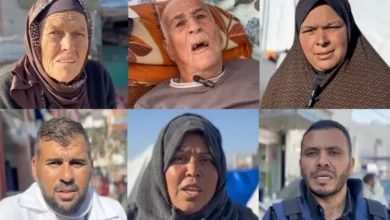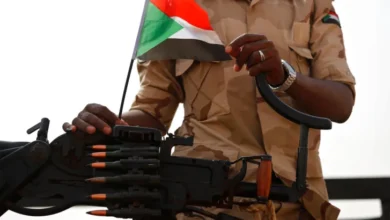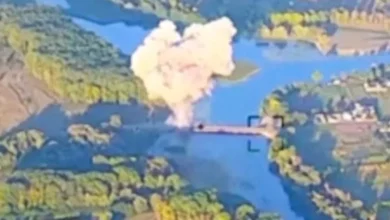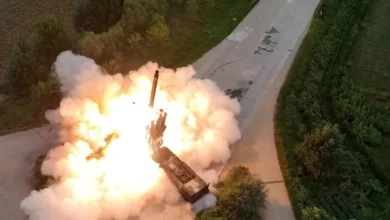G7 summit live news: Ukraine casts shadow over Hiroshima meeting
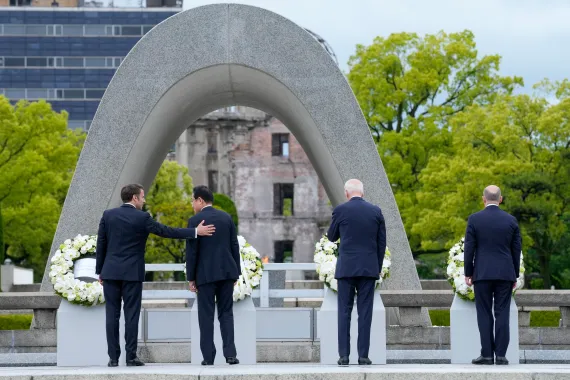
Japan is hosting the G7 Summit in Hiroshima, the hometown of Prime Minister Fumio Kishida, from May 19 -21, welcoming leaders from Canada, France, Germany, Italy, the United Kingdom, and the United States. The European Union is also a “non-enumerated member”.
The event began on Friday morning with Kishida welcoming the visiting leaders and officials at the Hiroshima Peace Memorial Park where they laid wreaths for the thousands of people who were killed when the United States dropped an atomic bomb on the city in 1945.G7 agrees on new sanctions to ‘starve Russia’s war machine’
Leaders from the Group of Seven nations agreed to new sanctions they said would “starve Russia of G7 technology, industrial equipment and services that support its war machine”.
The measures, announced at the summit in Hiroshima, include restrictions on exports of items “critical to Russia on the battlefield”, as well as ones targeting entities accused of moving material to the front for Moscow.Hiroshima survivors warn G7 leaders about using nuclear bombs
“It looked like a bright orange light, like the first sunrise of the year,” says Sadae Kasaoka, remembering the moment when the first nuclear bomb to ever be used was dropped by the United States on the Japanese city of Hiroshima.
Now 90, she was 12 years old that August day at the tail end of World War II, but she still remembers it vividly.
Sadae was home alone with her grandmother. When the blast hit, she was pushed against the wall by the massive force of the explosion and covered in broken glass. The two then fled into an air raid shelter for safety.UK announces new Russia sanctions, including diamond ban
Britain unveiled new sanctions against Russia targeting imports of diamonds, minerals, and advanced military technology in a bid to choke Moscow’s ability to fund the war in Ukraine.
UK Prime Minister Rishi Sunak told Sky News his “straightforward” message for Russian President Vladimir Putin was: “We’re not going away.”
Russia’s diamond trade is estimated to be worth $4bn to $5bn a year, netting the Kremlin much-needed tax revenues.
“One of the topics of conversation I’ll be having and have been having with my fellow leaders is about the longer term security agreements … for Ukraine to deter future Russian aggression,” Sunak said.
The G7 as a whole is expected to work to tighten existing sanctions, close loopholes, squeeze Moscow’s access to the international financial system, and commit to keeping Russian assets frozen until the end of the war in Ukraine.
Hiroshima attack survivor questions nuclear disarmament push
Japanese Prime Minister Fumio Kishida, who represents Hiroshima in parliament, wants nuclear disarmament to be a major focus of G7 discussions.
The visit by world leaders to Hiroshima’s Peace Memorial Park – dedicated to preserving reminders of August 6, 1945, when a US B-29 dropped an atomic bomb over the city – provided a striking backdrop to the start of the summit. An estimated 140,000 people were killed in the attack, and a fast-dwindling number of now-elderly survivors have ensured that Hiroshima has become synonymous with anti-nuclear peace efforts.
“Honestly, I have big doubts if Mr Kishida, who is pursuing a military buildup and seeking to revise the pacifist constitution, can really discuss nuclear disarmament,” said Sueichi Kido, an 83-year-old “hibakusha”, or survivor, of the Nagasaki explosion. “But because they are meeting in Hiroshima I do have a sliver of hope that they will have positive talks and make a tiny step toward nuclear disarmament.”ICRC, Japanese Red Cross urge G7 members to sign Treaty on the Prohibition of Nuclear Weapons
The International Committee of the Red Cross (ICRC) and Japanese Red Cross are urging the members of the G7 to sign the Treaty on the Prohibition of Nuclear Weapons.
On Friday morning, G7 leaders paid their respects at the memorial to those killed as a result of the bombing of Hiroshima.
Medical and humanitarian workers from the ICRC and Japanese Red Cross were among those who tried to help the dying and injured after the bomb was dropped in 1945, in what the organisation described as “near impossible” conditions.
“For the sake of the survival of humanity, we must free the world of weapons that threaten catastrophic humanitarian consequences and irreversible harm,” the two organisations said in a joint statement. “We cannot allow a repetition of this dark part of our past; we owe it to the survivors – the hibakusha – to ensure that the horrors they suffered are never repeated.”
Around the world, some 68 states have ratified the treaty, and 27 more have signed it. No G7 members have done so.
Ukraine leader’s ‘physical presence crucial’ at G7
Ukraine President Volodymyr Zelenskyy will join the Group of Seven summit in person on Sunday, a top official confirmed.
Zelenskyy will be making his furthest trip from of his war-torn country as leaders are set to unveil new sanctions on Russia for its invasion.
Oleksiy Danilov, secretary of Ukraine’s National Security and Defense Council, confirmed on national television that Zelenskyy would attend the summit.
“We were sure that our president would be where Ukraine needed him, in any part of the world, to solve the issue of stability of our country,” Danilov said. “There will be very important matters decided there, so physical presence is a crucial thing to defend our interests”.
